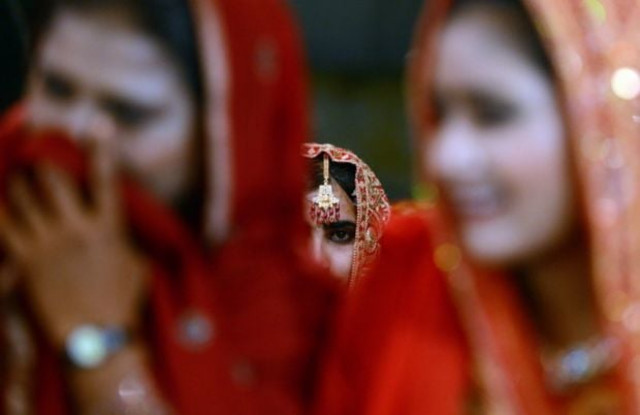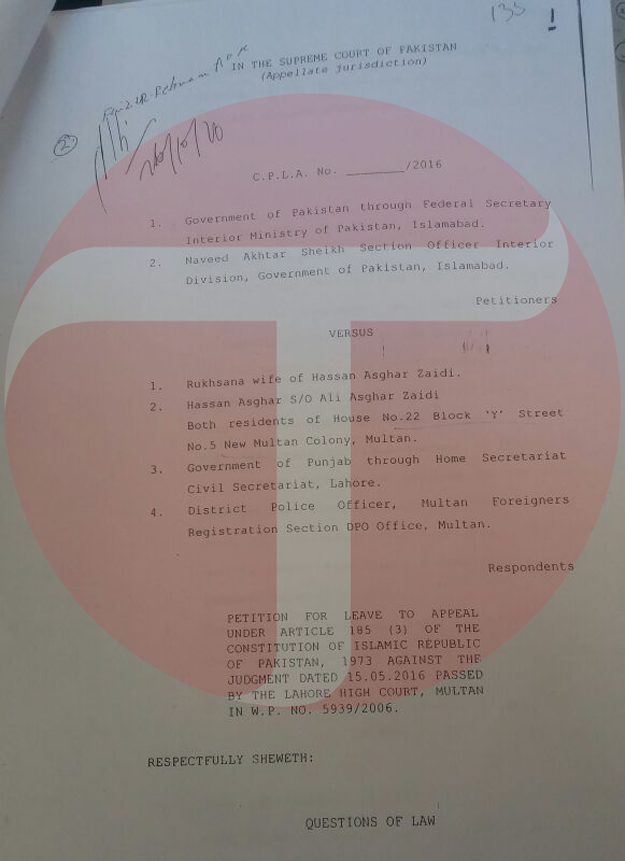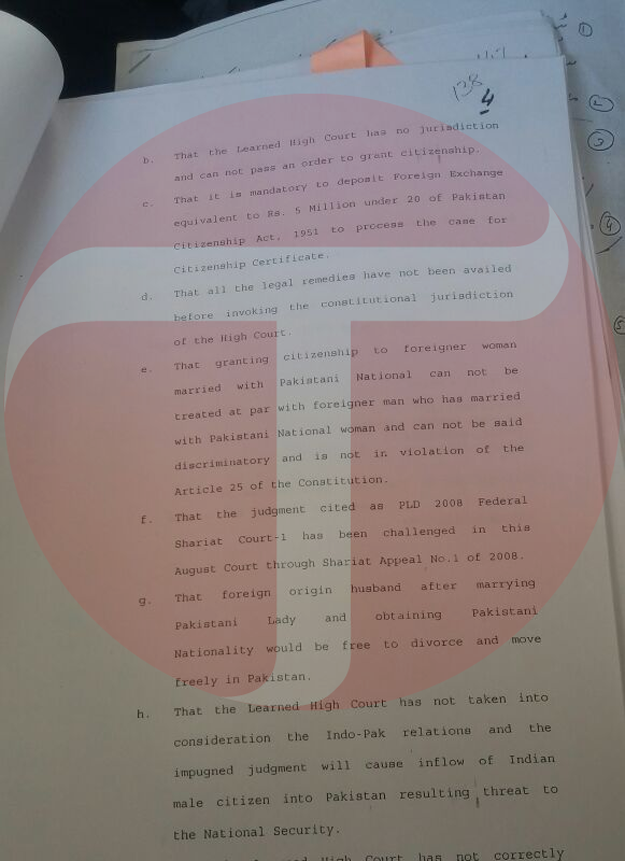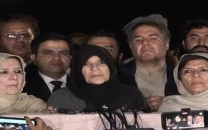SC to examine grant of citizenship to foreign national husbands
Hearing was adjourned till the first week of May

PHOTO: AFP
The two-judge bench headed by Chief Justice of Pakistan Mian Saqib Nisar on Friday took up two years interior ministry’s plea against a Lahore High Court (LHC) order, wherein the federal government was directed to grant citizenship to an Indian man, Asghar Haider, who married a Pakistani girl, Rukhsana, in 2004. Now they have two daughters.
Sub-section 2 of Section 10 of Pakistan Citizenship Act 1951 allows the grant of citizenship to a national’s foreign wife; however, it prohibits a foreign national husband of a Pakistani woman to attain citizenship of the country.

However, the federal government feared that the LHC did not consider the Indo-Pak relations and the judgment will cause inflow of Indian male citizen into Pakistan, resulting in a threat to national security.
The bench has granted leave to appeal of the interior ministry’s plea against the Lahore High Court ruling.
During the hearing, the bench observed that giving citizenship to foreign husbands may open another Pandora’s Box.
The court also observed that the high court did not examine all the requirements of law, adding that the court cannot direct the government to grant citizenship on humanitarian grounds and ignoring the citizenship act.
Another judge Justice Ijazul Ahsan observed that “giving citizenship to foreign husbands is a sensitive issue”.
The court also appointed senior lawyer Salman Aslam Butt as amicus curiae in the case.
Nayyab Gardezi appeared on behalf of the ministry.
The court further issued a notice to the attorney general for Pakistan and all advocates general and adjourned the hearing till the first week of May.
The interior ministry had challenged the LHC order in the apex court.
The petition states that Asghar, an Indian national, had applied for the Pakistani citizenship after marrying Rukhsana who is a Pakistani national.
Women rights: Seats sought in parliament for FATA women

He was asked to deposit Rs5 million under the Pakistan Citizenship Act 1951.
However, instead of depositing the payment, Haider had filed a writ petition along with his wife for the grant of citizenship, which was allowed by the LHC Multan bench on May 18, 2016.
Later, the interior ministry challenged the LHC order stating that the LHC has no jurisdiction to grant citizenship and it is mandatory to deposit foreign exchange equivalent to Rs5 million under Section 20 of the Pakistan citizenship Act 1951.
The government contends that granting citizenship to a foreigner woman married with Pakistani national cannot be treated as per a foreign man who has married a Pakistani woman and cannot be said discriminatory and is not a violation of Article 25 of the Constitution, which states that all citizens are equal before the law and are entitled to equal protection of law and that there shall be no discrimination on the basis of sex.
The government has expressed apprehension that the foreign-origin man after marrying and obtaining the Pakistani nationality would be free to divorce his wife and move freely in Pakistan.
Interestingly, Asma Jahangir was appearing voluntarily on behalf of the respondent couple as they could not afford the lawyer’s fees.
However, after her death, the SC had referred the matter to the Pakistan Bar Council for nomination of another counsel for contesting their case free of cost.
The PBC had appointed Chaudhry Liaquat Ali Sandhu to plead their matter. Sandhu on Friday defending the LHC judgment contends that Sub-section 2 of Section 10 of the Pakistan Citizenship Act is against Article 25 of the Constitution.
Later, the bench was convinced to examine the vires of the section; therefore, notices have been issued to all law officers for assistance.
The bench also maintained that Asghar and his son will not be deported from Pakistan till decision of the case.



















COMMENTS
Comments are moderated and generally will be posted if they are on-topic and not abusive.
For more information, please see our Comments FAQ